PA 12 mg Tablet 12's
MRP ₹73
(Inclusive of all Taxes)
₹10.9 Cashback (15%)
About PA 12 mg Tablet
PA 12 mg Tablet Test Testing Gopal belongs to the group of medicines called analgesics (pain killers), and antipyretics (fever-reducing agents) used to reduce fever and treat mild to moderate pain. Also, it is used to relieve headache, migraine, toothache, period pain, back pain, muscle pain and rheumatic pains. Pain and fever are caused by the activation of pain receptors due to the release of certain natural chemicals in the body like prostaglandin.
PA 12 mg Tablet works by inhibiting the production of certain chemical messengers in the brain known as prostaglandins. Thus, reduces pain. Also, PA 12 mg Tablet affects an area of the brain that regulates body temperature known as the hypothalamic heat-regulating centre. Thereby, it reduces fever.
Take PA 12 mg Tablet as advised by your physician. Your doctor will recommend how often you need to take PA 12 mg Tablet based on your medical condition. In some cases, PA 12 mg Tablet may cause side effects such as nausea, stomach pain and dark coloured urine. Most of these side effects of PA 12 mg Tablet do not require medical attention and gradually resolve over time. However, if the side effects persist or worsen, please consult your doctor.
Avoid taking PA 12 mg Tablet if allergic to it. PA 12 mg Tablet is not recommended for children below 6 years of age. If you are pregnant or breastfeeding, please consult a physician before using PA 12 mg Tablet . Avoid alcohol consumption with PA 12 mg Tablet as it may increase the risk of liver damage. If you have an impaired nutritional state caused by anorexia (eating disorder), malnutrition or alcohol abuse or if you are dehydrated, inform your doctor before taking PA 12 mg Tablet .a
Country of origin
Manufacturer/Marketer address
Online payment accepted

secured payment

india's most trusted pharmacy

genuine products
Composition :
Manufacturer/Marketer :
Consume Type :
Expires on or after :
Return Policy :
Provide Delivery Location
About PA 12 mg Tablet
PA 12 mg Tablet Test Testing Gopal belongs to the group of medicines called analgesics (pain killers), and antipyretics (fever-reducing agents) used to reduce fever and treat mild to moderate pain. Also, it is used to relieve headache, migraine, toothache, period pain, back pain, muscle pain and rheumatic pains. Pain and fever are caused by the activation of pain receptors due to the release of certain natural chemicals in the body like prostaglandin.
PA 12 mg Tablet works by inhibiting the production of certain chemical messengers in the brain known as prostaglandins. Thus, reduces pain. Also, PA 12 mg Tablet affects an area of the brain that regulates body temperature known as the hypothalamic heat-regulating centre. Thereby, it reduces fever.
Take PA 12 mg Tablet as advised by your physician. Your doctor will recommend how often you need to take PA 12 mg Tablet based on your medical condition. In some cases, PA 12 mg Tablet may cause side effects such as nausea, stomach pain and dark coloured urine. Most of these side effects of PA 12 mg Tablet do not require medical attention and gradually resolve over time. However, if the side effects persist or worsen, please consult your doctor.
Avoid taking PA 12 mg Tablet if allergic to it. PA 12 mg Tablet is not recommended for children below 6 years of age. If you are pregnant or breastfeeding, please consult a physician before using PA 12 mg Tablet . Avoid alcohol consumption with PA 12 mg Tablet as it may increase the risk of liver damage. If you have an impaired nutritional state caused by anorexia (eating disorder), malnutrition or alcohol abuse or if you are dehydrated, inform your doctor before taking PA 12 mg Tablet .a
Uses of PA 12 mg Tablet
Key Benefits
PA 12 mg Tablet contains Paracetamol, an analgesic (pain killer) and antipyretic (reduces fever). It inhibits the production of certain chemical messengers in the brain known as prostaglandins. Thus, reduces pain. Also, PA 12 mg Tablet affects an area of the brain that regulates body temperature known as the hypothalamic heat-regulating centre. Thereby, it reduces fever.
Directions for Use
Tablet/capsule: Swallow it as a whole with a glass of water. It can be taken with or without food anytime. Do not crush, break or chew it. Oral liquid: Shake the bottle well before use. Take the suggested dose by mouth using the measuring cup/dosing syringe/dropper provided by the pack.
Storage
Side Effects of PA 12 mg Tablet
side effect 1
Drug Warnings
Avoid taking PA 12 mg Tablet if allergic to it. PA 12 mg Tablet is not recommended for children below 6 years of age. If you are pregnant or breastfeeding, please consult a physician before using PA 12 mg Tablet . Avoid alcohol consumption with PA 12 mg Tablet as it may increase the risk of liver damage. If you have an impaired nutritional state caused by anorexia (eating disorder), wrong nutrition or alcohol abuse or if you are dehydrated, inform your doctor before taking PA 12 mg Tablet . Avoid taking more than recommended doses as it may increase the risk of serious liver damage.
Drug Interactions
Drug-Drug Interactions: PA 12 mg Tablet may interact with blood thinners (warfarin), cholesterol-lowering drugs (cholestyramine), analgesics (aspirin), antibiotics (chloramphenicol, rifampicin), anti-gout medicines (probenecid), antitubercular drug (isoniazid), anticonvulsants (lamotrigine, carbamazepine, phenytoin), and anti-nausea agents (metoclopramide, domperidone).
Drug-Food Interactions: PA 12 mg Tablet may interact with St. John’s wort (herbal medicine to treat depression). Avoid foods rich in carbohydrates, and pectin including jellies, cabbage, Brussels sprouts and broccoli as PA 12 mg Tablet may interact with these foods. Also, avoid intake of alcohol with PA 12 mg Tablet as it may increase the risk of liver damage.
Drug-Disease Interactions: If you have kidney or liver disease, hepatitis, Gilbert's syndrome (a liver condition), hemolytic anaemia (abnormal breakdown of red blood cells), G-6-PD deficiency (a hereditary condition resulting in low red blood cell counts), blood poisoning, inform your physician before taking PA 12 mg Tablet .
Drug-Drug Interactions Checker List
- WARFARIN
- CHOLESTYRAMINE
- ASPIRIN
- METOCLOPRAMIDE
- DOMPERIDONE
- CHLORAMPHENICOL
- RIFAMPICIN
- PROBENECID
- ISONIAZID
- LAMOTRIGINE
- CARBAMAZEPINE
- PHENYTOIN
Habit Forming
Diet & Lifestyle Advise
Get adequate sleep as resting the muscles can help in reducing inflammation and swelling.
Follow heat or cold therapy, apply a cold or hot compress on the joints for 15-20minutes regularly.
Acupuncture, massage and physical therapy may also be helpful.
Eat foods rich in antioxidants such as berries, spinach, kidney beans, dark chocolate, etc.
Foods containing flavonoids such as soy, berries, broccoli, grapes and green tea help in reducing inflammation.
Maintain a healthy weight by performing regular low-strain exercises and eating healthy food.
Avoid smoking and alcohol consumption.
Special Advise
If you have a high fever or signs of infection after using PA 12 mg Tablet for more than 3 days or if pain persists after using PA 12 mg Tablet for more than 5 days, please consult a physician.
Disease/Condition Glossary
Pain: It is a term used to describe any unpleasant feeling or discomfort. It occurs due to nerve damage (in cases of backache, toothache, or muscle pain) or persistent stimulation (in headaches or migraine). Pain may vary from mild to severe, depending on the underlying condition.
Fever: It is an abnormal increase in body temperature due to infection, chemotherapy, or various disease condition. If the body temperature is 98.6°F, it is normal and if it goes above 100.4°F (38℃), it is called fever or pyrexia. Body temperature is increased in response to infection or varied problems to protect the body. Flu is one of the most common causes of fever.
FAQs
Disclaimer
Alcohol
Safe if prescribed
You are recommended to avoid consumption of alcohol with Paracetamol as it may cause severe liver damage.
Pregnancy
Consult your doctor
Please consult a physician if you are pregnant or planning for pregnancy before using this medicine. Your physician may suggest the lowest dose of Paracetamol for the shortest duration if you are pregnant.
Breast Feeding
Consult your doctor
Paracetamol may be excreted in small amounts in breast milk. Therefore, please consult a physician before using this medicine if you are breastfeeding.
Driving
Safe if prescribed
PA 12 mg Tablet usually does not affect your ability to drive or operate machinery.
Liver
Consult your doctor
Take PA 12 mg Tablet with caution, especially if you have a history of liver diseases/conditions. The dose may be adjusted by your physician as required.
Kidney
Consult your doctor
Take PA 12 mg Tablet with caution, especially if you have a history of kidney diseases/conditions. The dose may be adjusted by your physician as required.
Children
Safe if prescribed
Please consult a doctor. Your doctor will prescribe a suitable dose of Paracetamol based on the age, bodyweight and condition of your child.
Author Details
We provide you with authentic, trustworthy and relevant information
Reference
- https://www.hpra.ie/img/uploaded/swedocuments/2b04cfdb-8571-4543-a4c9-b1380e0a92c3.pdf
- https://www.sahpra.org.za/wp-content/uploads/2020/06/Von-Paracetamol_PIL_Drugcompany_MCC-Format25-June-2001.pdf
- https://www.boots.com/wcsstore/ExtendedSitesCatalogAssetStore/Attachment/Product_PatientLeaflets/10186783%20Paracetamol%20PIL%2019%2009%202018.pdf
- https://www.drugs.com/paracetamol.html
- https://www.mims.com/india/drug/info/paracetamol?type=full&mtype=generic
Uses of PA 12 mg Tablet
Key Benefits
PA 12 mg Tablet contains Paracetamol, an analgesic (pain killer) and antipyretic (reduces fever). It inhibits the production of certain chemical messengers in the brain known as prostaglandins. Thus, reduces pain. Also, PA 12 mg Tablet affects an area of the brain that regulates body temperature known as the hypothalamic heat-regulating centre. Thereby, it reduces fever.
Directions for Use
Tablet/capsule: Swallow it as a whole with a glass of water. It can be taken with or without food anytime. Do not crush, break or chew it. Oral liquid: Shake the bottle well before use. Take the suggested dose by mouth using the measuring cup/dosing syringe/dropper provided by the pack.
Storage
Drug Warnings
Avoid taking PA 12 mg Tablet if allergic to it. PA 12 mg Tablet is not recommended for children below 6 years of age. If you are pregnant or breastfeeding, please consult a physician before using PA 12 mg Tablet . Avoid alcohol consumption with PA 12 mg Tablet as it may increase the risk of liver damage. If you have an impaired nutritional state caused by anorexia (eating disorder), wrong nutrition or alcohol abuse or if you are dehydrated, inform your doctor before taking PA 12 mg Tablet . Avoid taking more than recommended doses as it may increase the risk of serious liver damage.
Therapeutic Class
Drug-Drug Interactions
Drug-Drug Interactions
Login/Sign Up
Co-administration of PA 12 mg Tablet may decrease the excretion rate of Oxazepam which could result in a higher serum level.
How to manage the interaction:
Although there is a possible interaction between Oxazepam and PA 12 mg Tablet, you can take these medicines together if prescribed by a doctor. Do not stop using any medications without a doctor's advice.
Co-administration of ketamine and PA 12 mg Tablet may decrease the effectiveness of Ketamine which could result in a higher blood level.
How to manage the interaction:
Although taking Ketamine and PA 12 mg Tablet together can evidently cause an interaction, it can be taken if a doctor has suggested it. If you're feeling very sleepy or having trouble breathing, it's important to contact your doctor right away. Do not stop using any medications without a doctor's advice.
Co-administration of Teriflunomide with PA 12 mg Tablet may increase the risk or severity of Liver problems.
How to manage the interaction:
Taking PA 12 mg Tablet with Teriflunomide together can possibly result in an interaction, but it can be taken if a doctor has advised it. Do not discontinue any medications without consulting a doctor.
Co-administration of PA 12 mg Tablet and Ketoconazole may increase the risk of liver injury.
How to manage the interaction:
Although there is a possible interaction between PA 12 mg Tablet and Ketoconazole, you can take these medicines together if prescribed by a doctor. However, if you have joint pain or swelling, fever, chills, unusual bleeding or bruising, skin rash, itching, over-tiredness, nausea, vomiting, loss of appetite, stomach pain, dark-colored urine, light-colored stools, and/or yellowing of the skin or eyes, contact a doctor immediately as these may be signs and symptoms of liver damage. Do not discontinue the medication without consulting a doctor.
Co-administration of PA 12 mg Tablet and Leflunomide may increase the risk of liver problems.
How to manage the interaction:
Although there is a possible interaction between PA 12 mg Tablet and Leflunomide, they can be taken together if prescribed by a doctor. However, if you experience fever, chills, joint pain or swelling, unusual bleeding or bruising, skin rash, itching, less desire to eat, fatigue, nausea, vomiting, abdominal pain, or yellowing of the skin or eyes, contact a doctor immediately. Do not discontinue any medications without consulting a doctor.
Co-administration of PA 12 mg Tablet and Valdecoxib may increase the risk or severity of adverse effects.
How to manage the interaction:
Although there is a possible interaction between PA 12 mg Tablet and Valdecoxib, you can take these medicines together if prescribed by a doctor. However, if the side effects worsen, please consult a doctor.
Co-administration of Lomitapide and PA 12 mg Tablet may increase the risk of severity of liver injury.
How to manage the interaction:
Although there is a possible interaction between PA 12 mg Tablet and Lomitapide, you can take these medicines together if prescribed by a doctor. Do not stop using any medications without a doctor's advice.
Co-administration of Mipomersen with PA 12 mg Tablet may increase the risk or severity of liver injury.
How to manage the interaction:
There may be a possibility of interaction between PA 12 mg Tablet and Mipomersen, but it can be taken if prescribed by a doctor. Do not stop using any medications without talking to a doctor.
Drug-Drug Interactions Checker List
- WARFARIN
- CHOLESTYRAMINE
- ASPIRIN
- METOCLOPRAMIDE
- DOMPERIDONE
- CHLORAMPHENICOL
- RIFAMPICIN
- PROBENECID
- ISONIAZID
- LAMOTRIGINE
- CARBAMAZEPINE
- PHENYTOIN
Diet & Lifestyle Advise
Get adequate sleep as resting the muscles can help in reducing inflammation and swelling.
Follow heat or cold therapy, apply a cold or hot compress on the joints for 15-20minutes regularly.
Acupuncture, massage and physical therapy may also be helpful.
Eat foods rich in antioxidants such as berries, spinach, kidney beans, dark chocolate, etc.
Foods containing flavonoids such as soy, berries, broccoli, grapes and green tea help in reducing inflammation.
Maintain a healthy weight by performing regular low-strain exercises and eating healthy food.
Avoid smoking and alcohol consumption.
Habit Forming
How PA 12 mg Tablet Works
What if I have taken an overdose of PA 12 mg Tablet
Side Effects of PA 12 mg Tablet
side effect 1
Special Advise
If you have a high fever or signs of infection after using PA 12 mg Tablet for more than 3 days or if pain persists after using PA 12 mg Tablet for more than 5 days, please consult a physician.
Disease/Condition Glossary
Pain: It is a term used to describe any unpleasant feeling or discomfort. It occurs due to nerve damage (in cases of backache, toothache, or muscle pain) or persistent stimulation (in headaches or migraine). Pain may vary from mild to severe, depending on the underlying condition.
Fever: It is an abnormal increase in body temperature due to infection, chemotherapy, or various disease condition. If the body temperature is 98.6°F, it is normal and if it goes above 100.4°F (38℃), it is called fever or pyrexia. Body temperature is increased in response to infection or varied problems to protect the body. Flu is one of the most common causes of fever.
All Substitutes & Brand Comparisons
RX
Pyrigesic 1000 mg Tablet 10's
East India Pharmaceutical Works Ltd
₹40
(₹3.6 per unit)
34% CHEAPERRX
Dolo 1000 mg Tablet 10's
Micro Labs Ltd
₹46.5
(₹4.19 per unit)
23% CHEAPERRX
Actmin 1000 mg Tablet 10's
Prorient Pharmaceuticals Pvt Ltd
₹56
(₹4.93 per unit)
10% CHEAPER

Have a query?


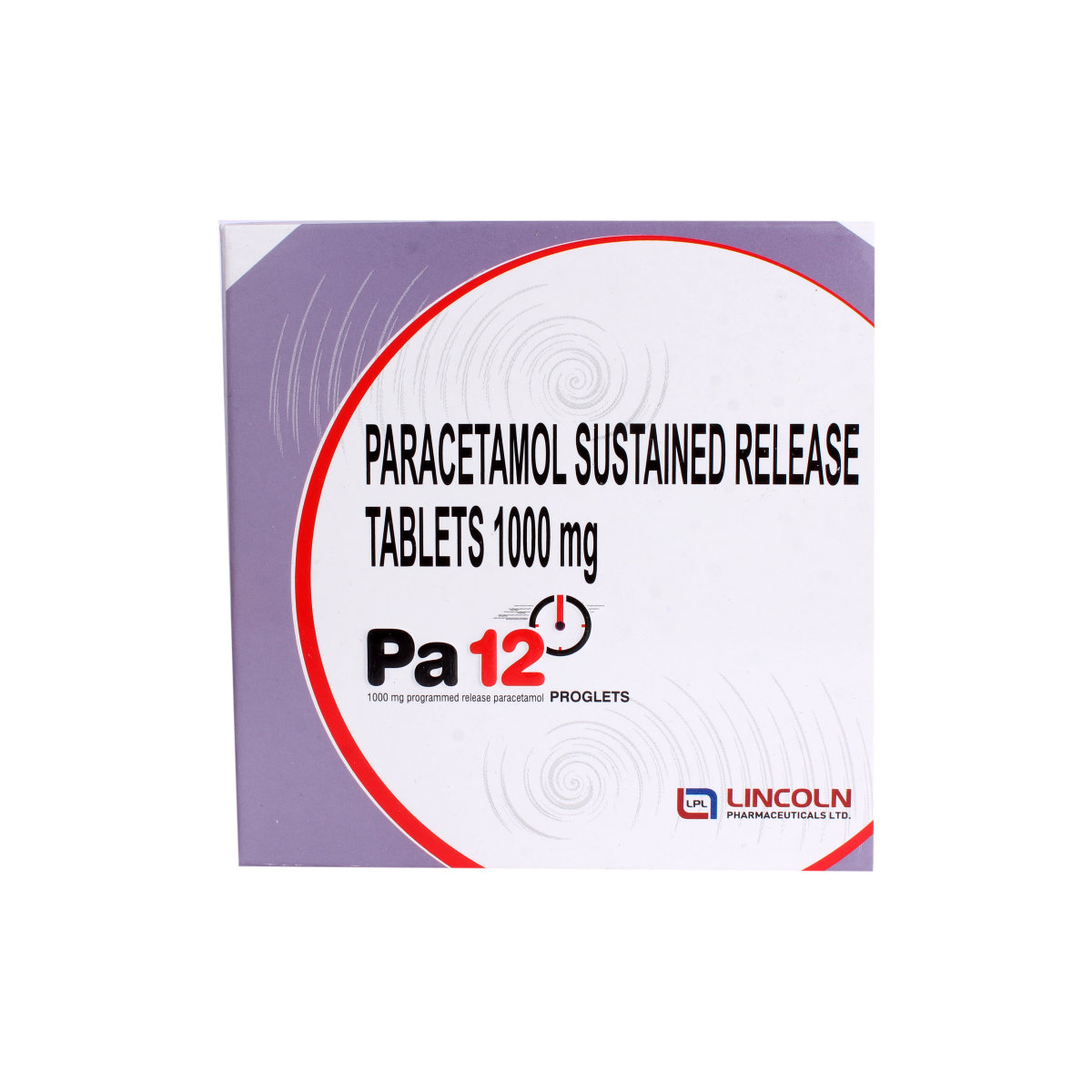
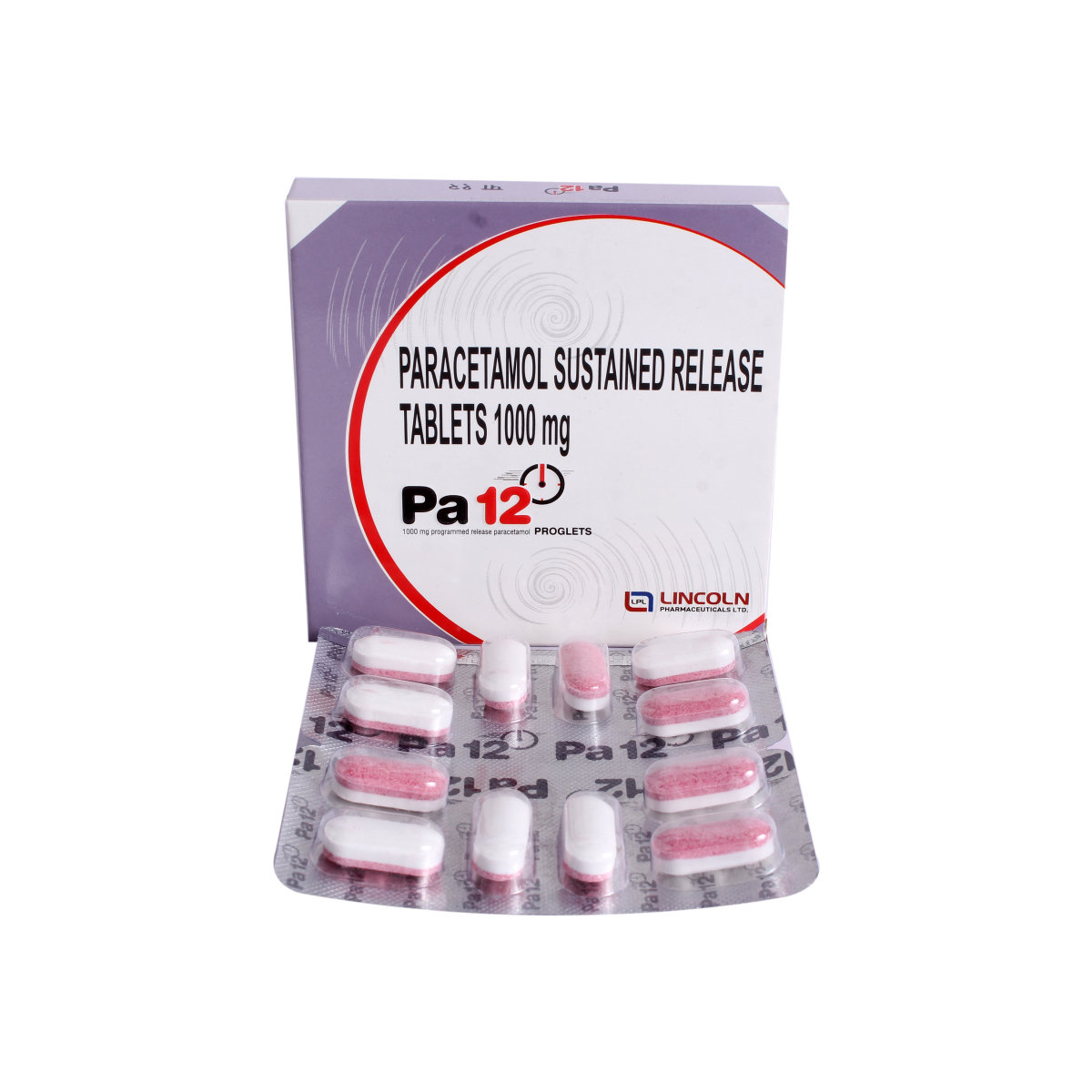
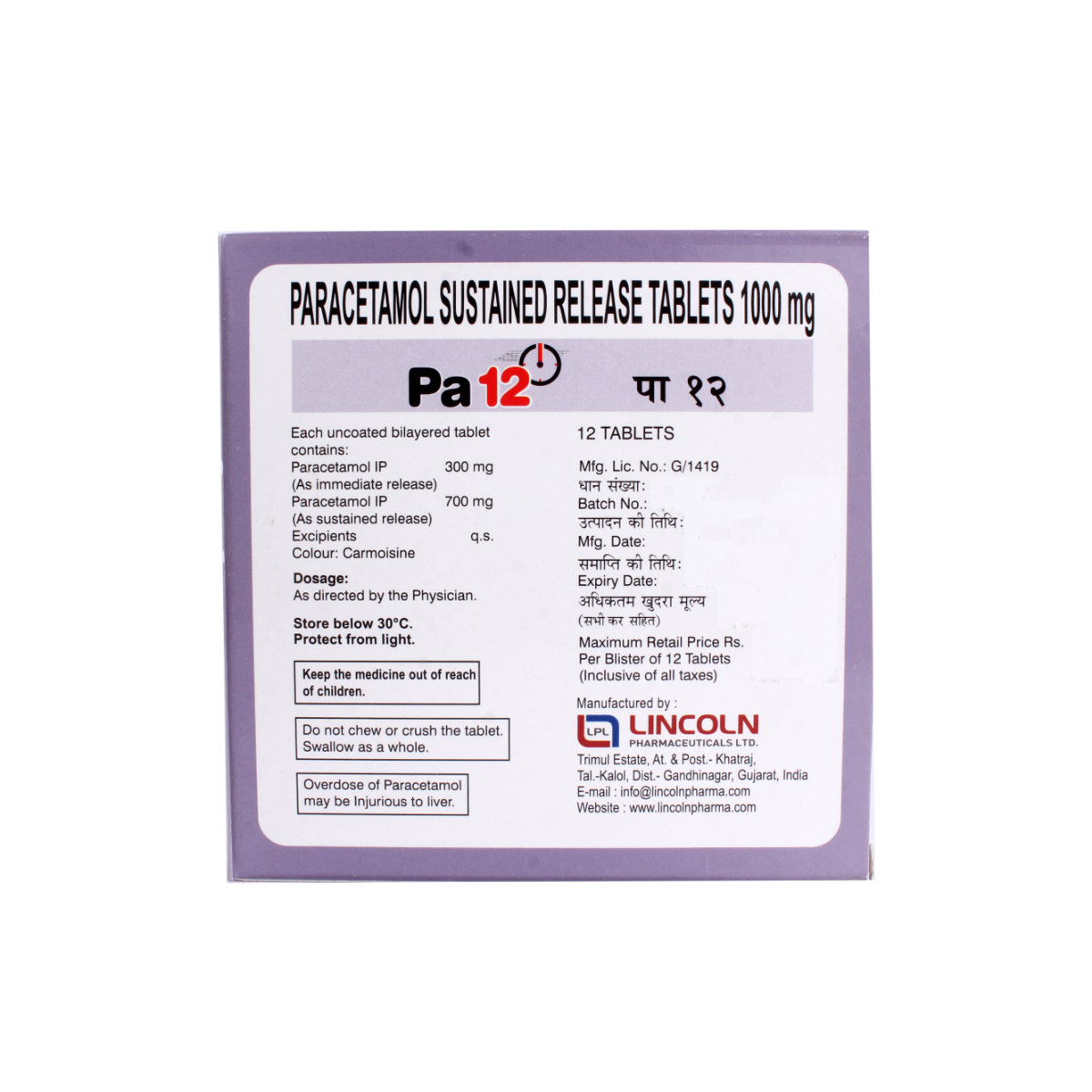












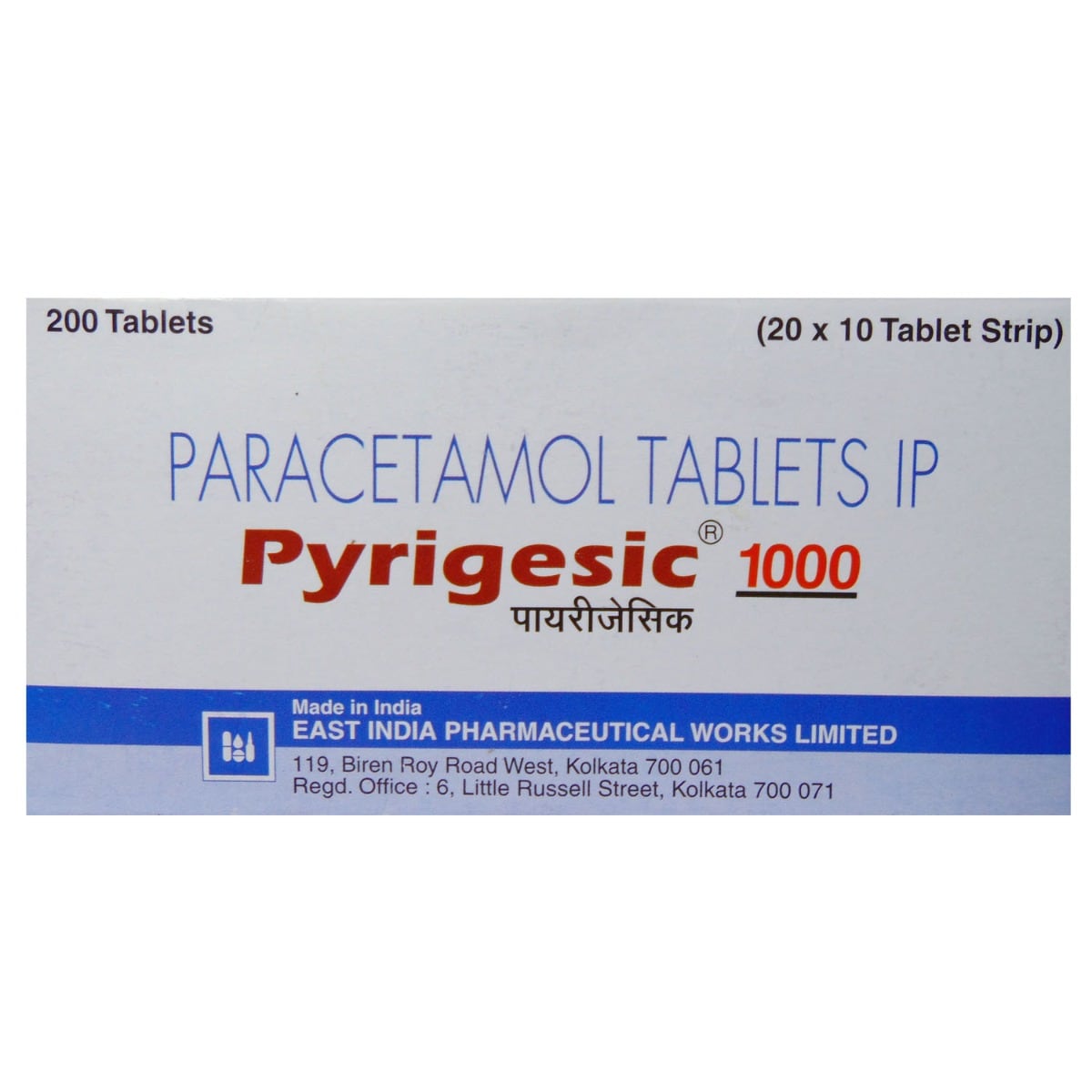
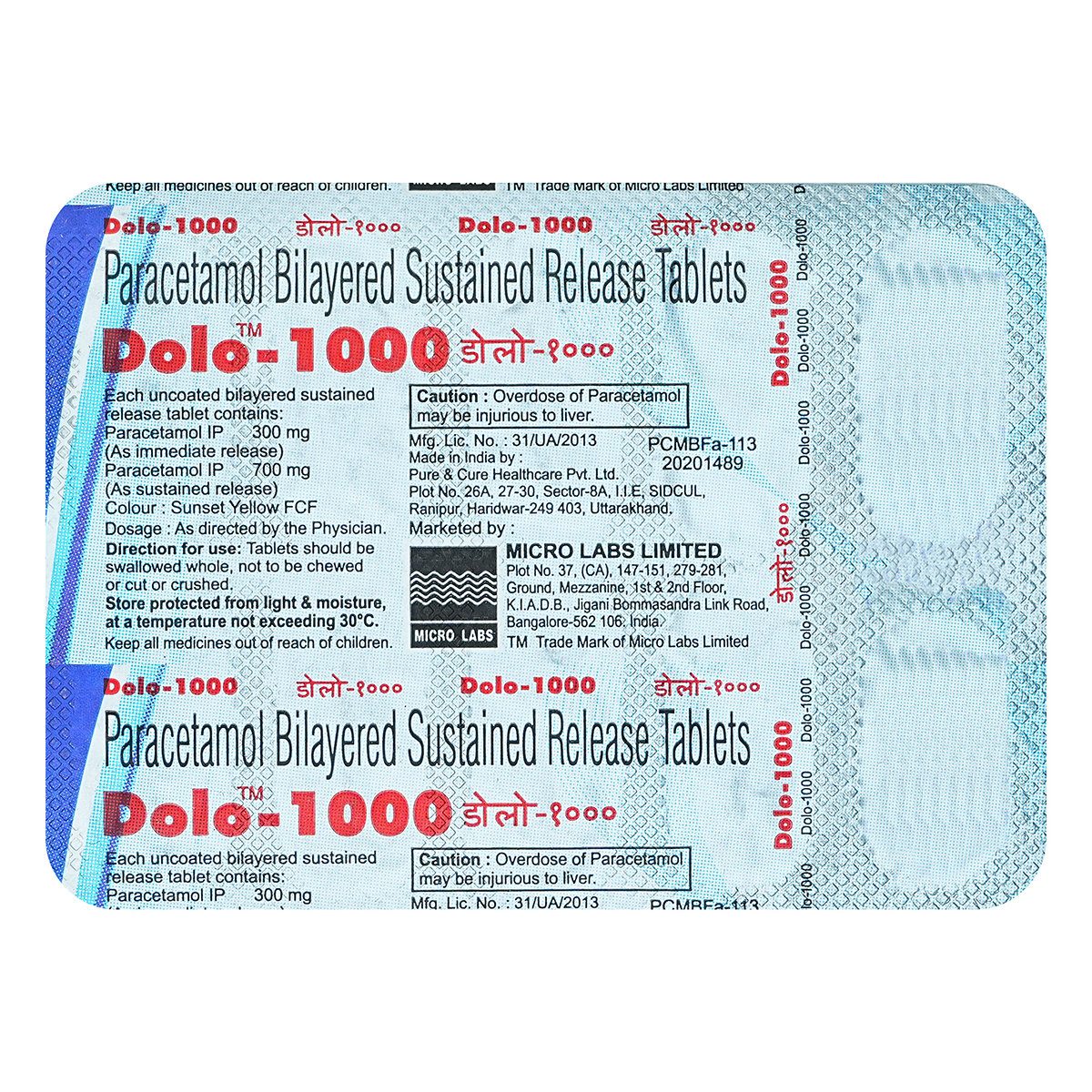
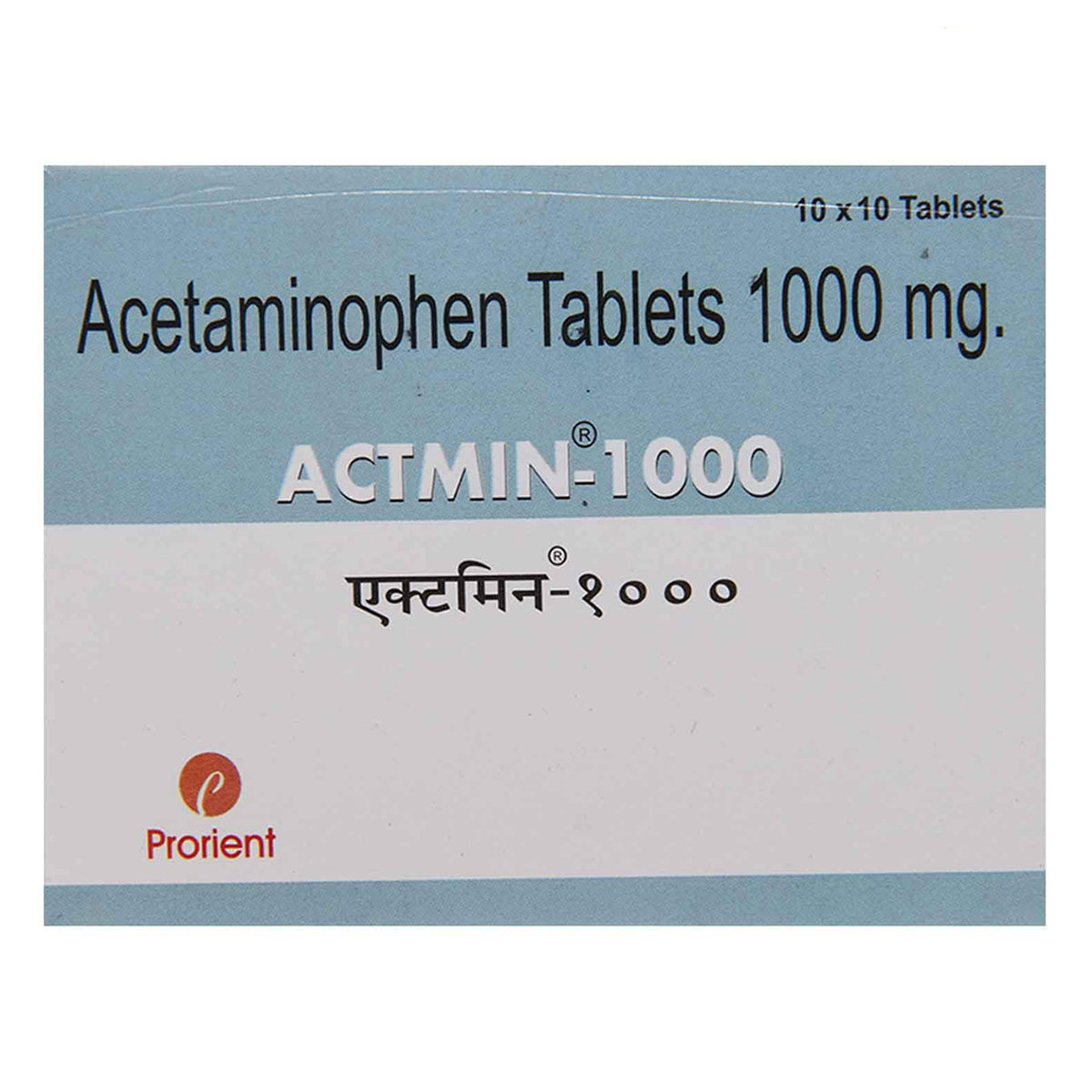
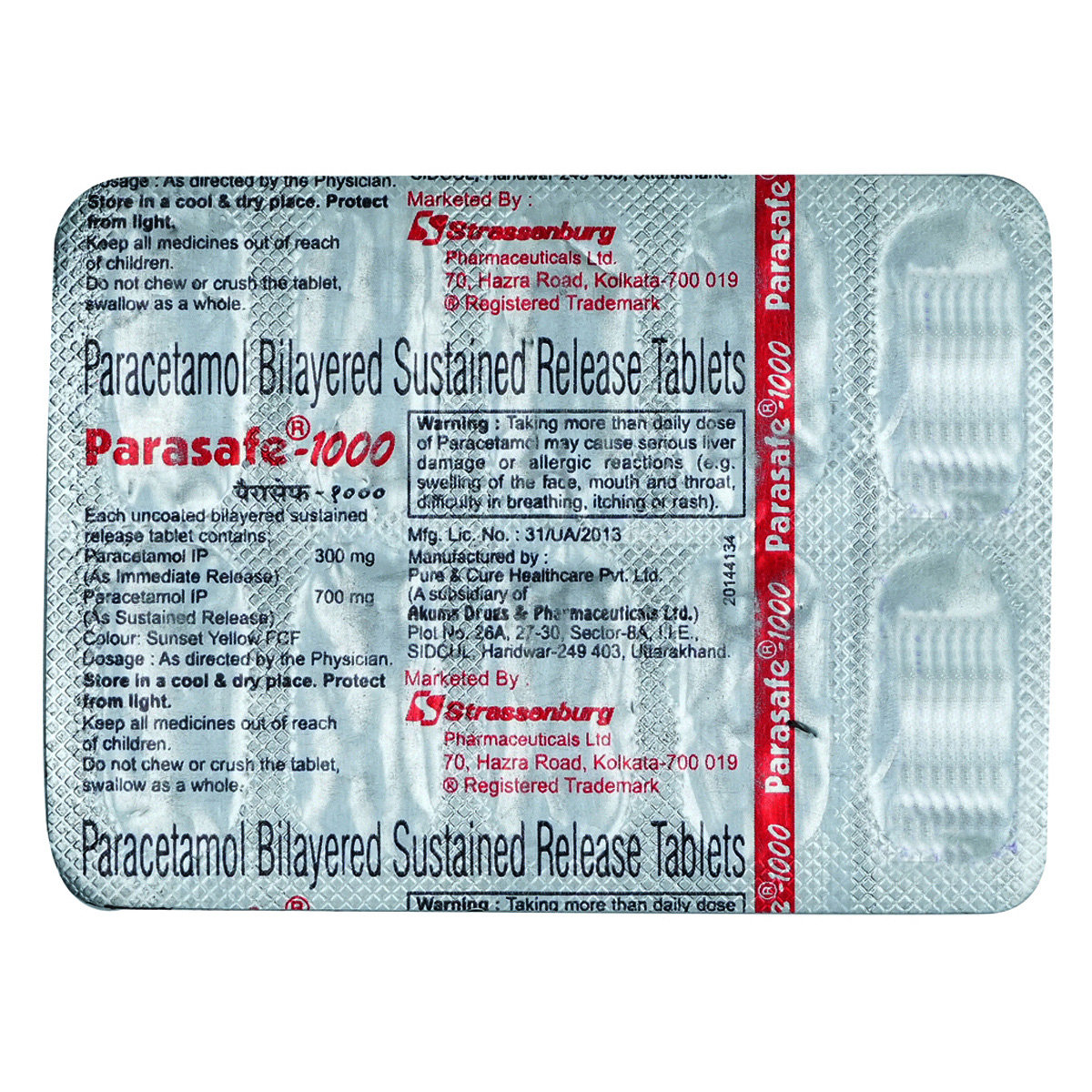
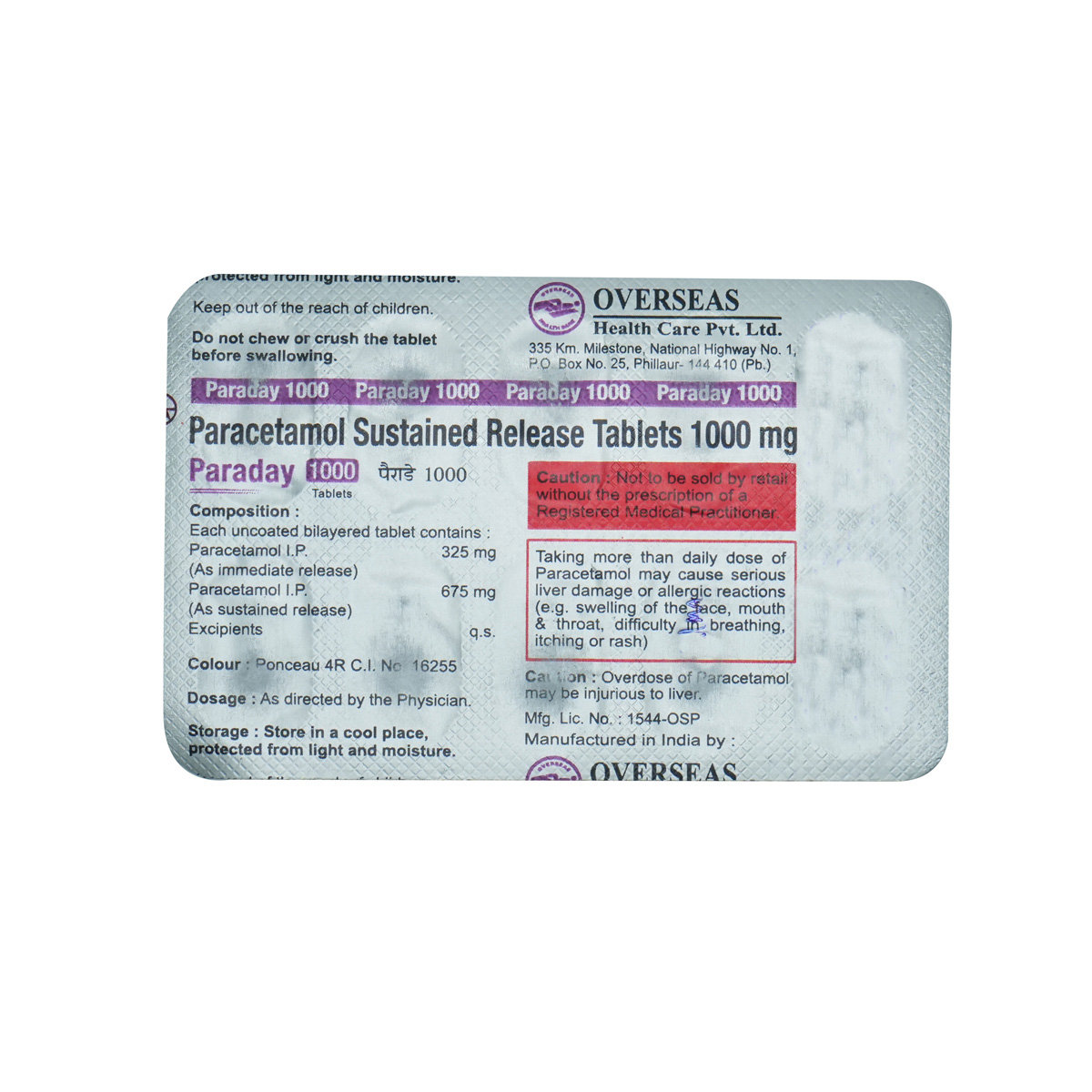
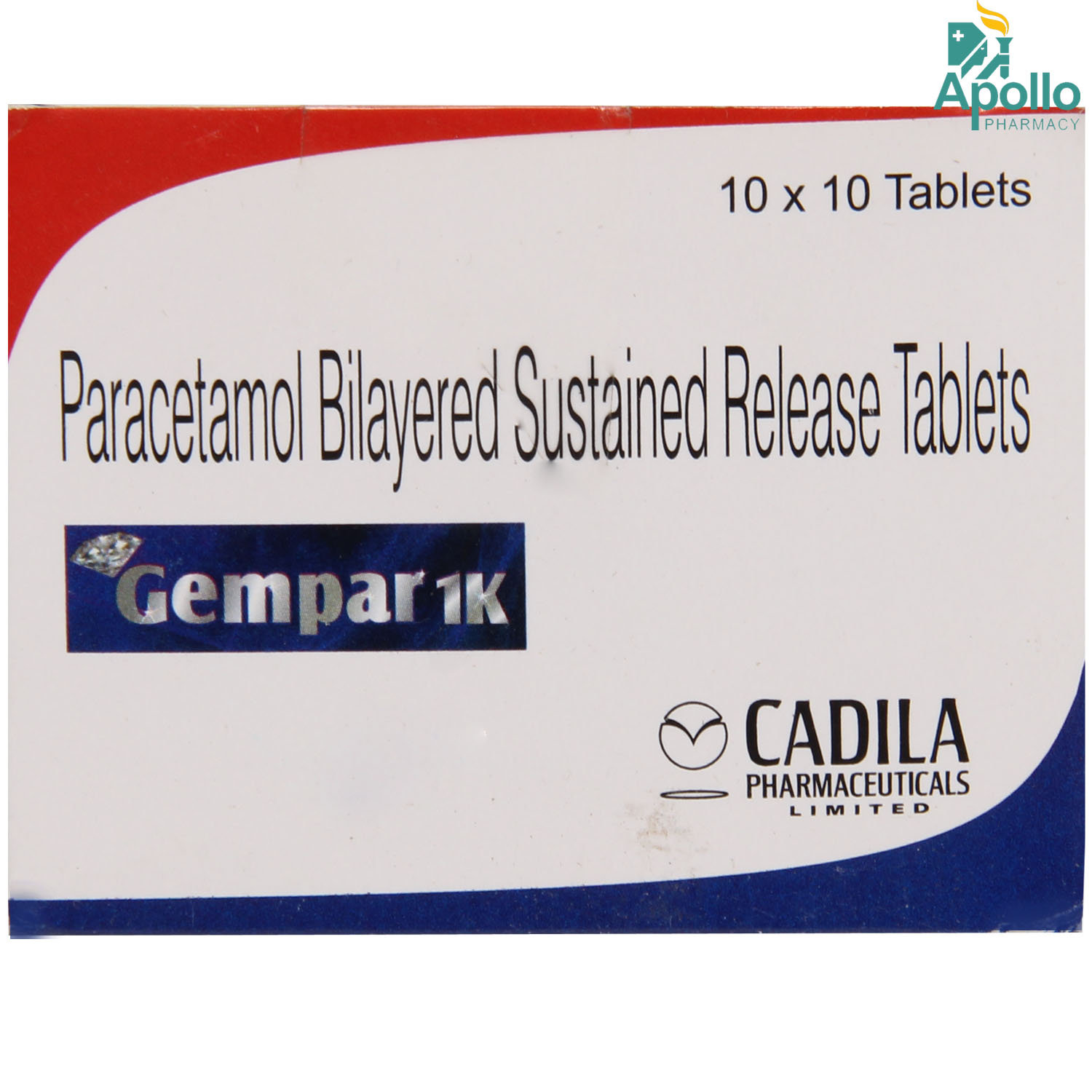
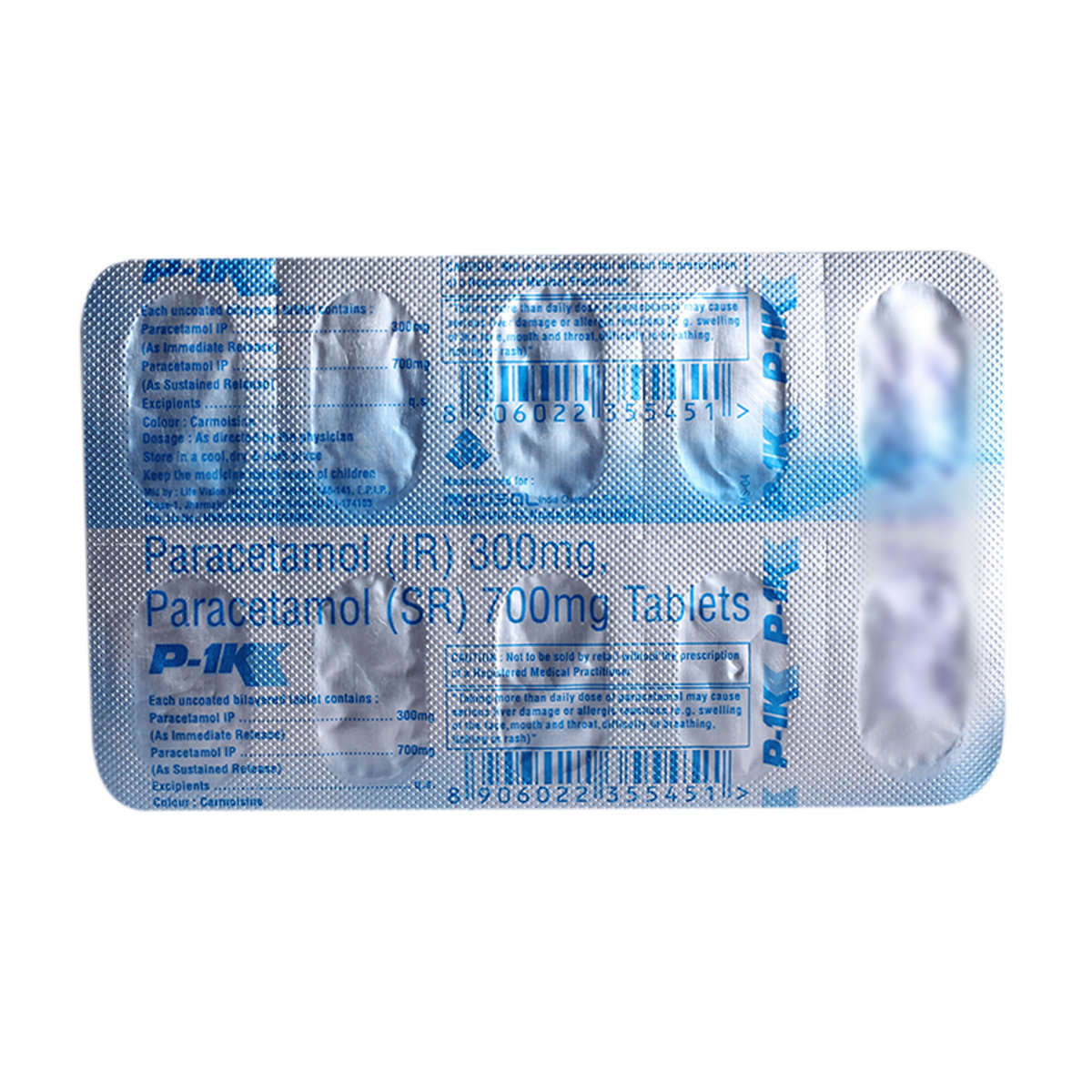
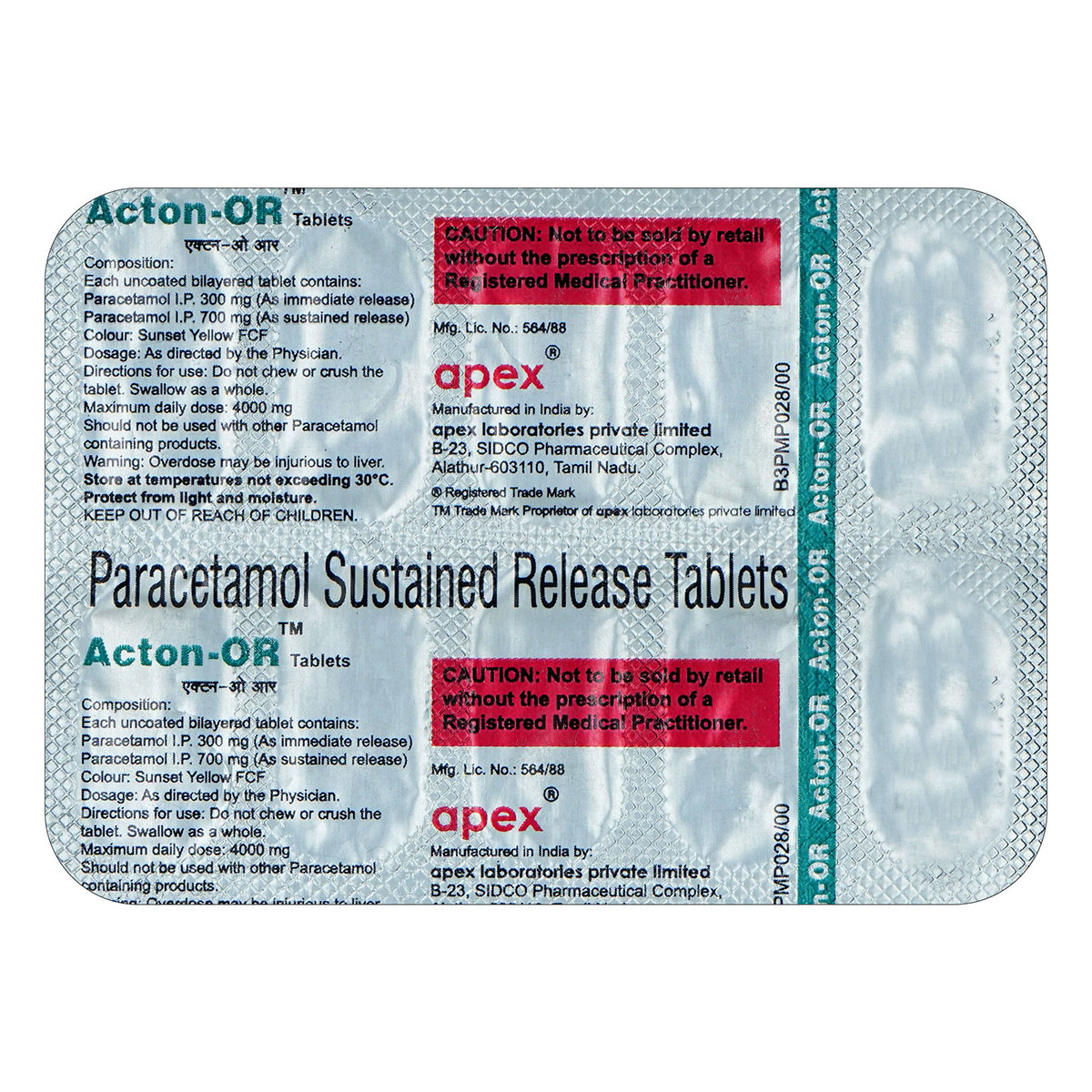

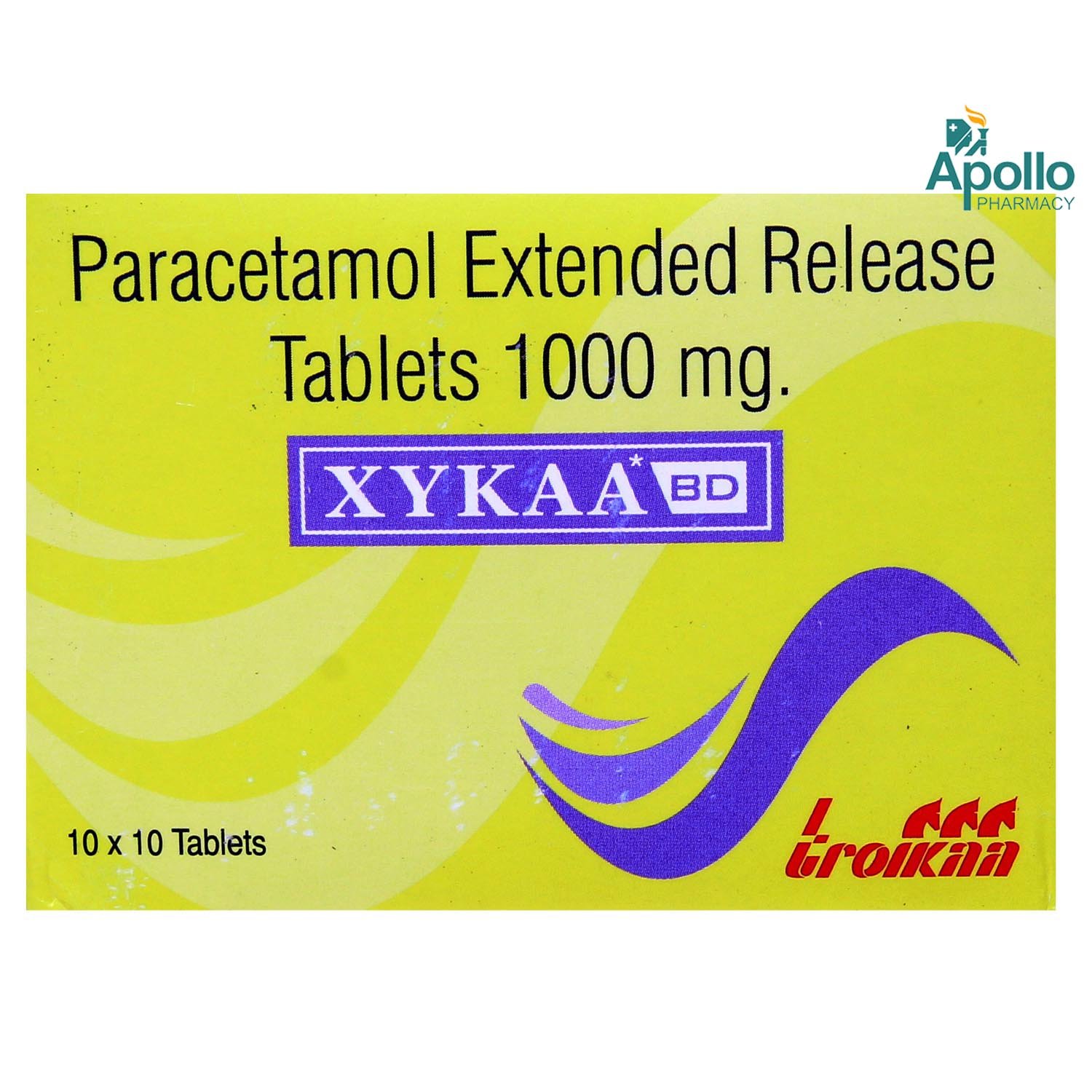
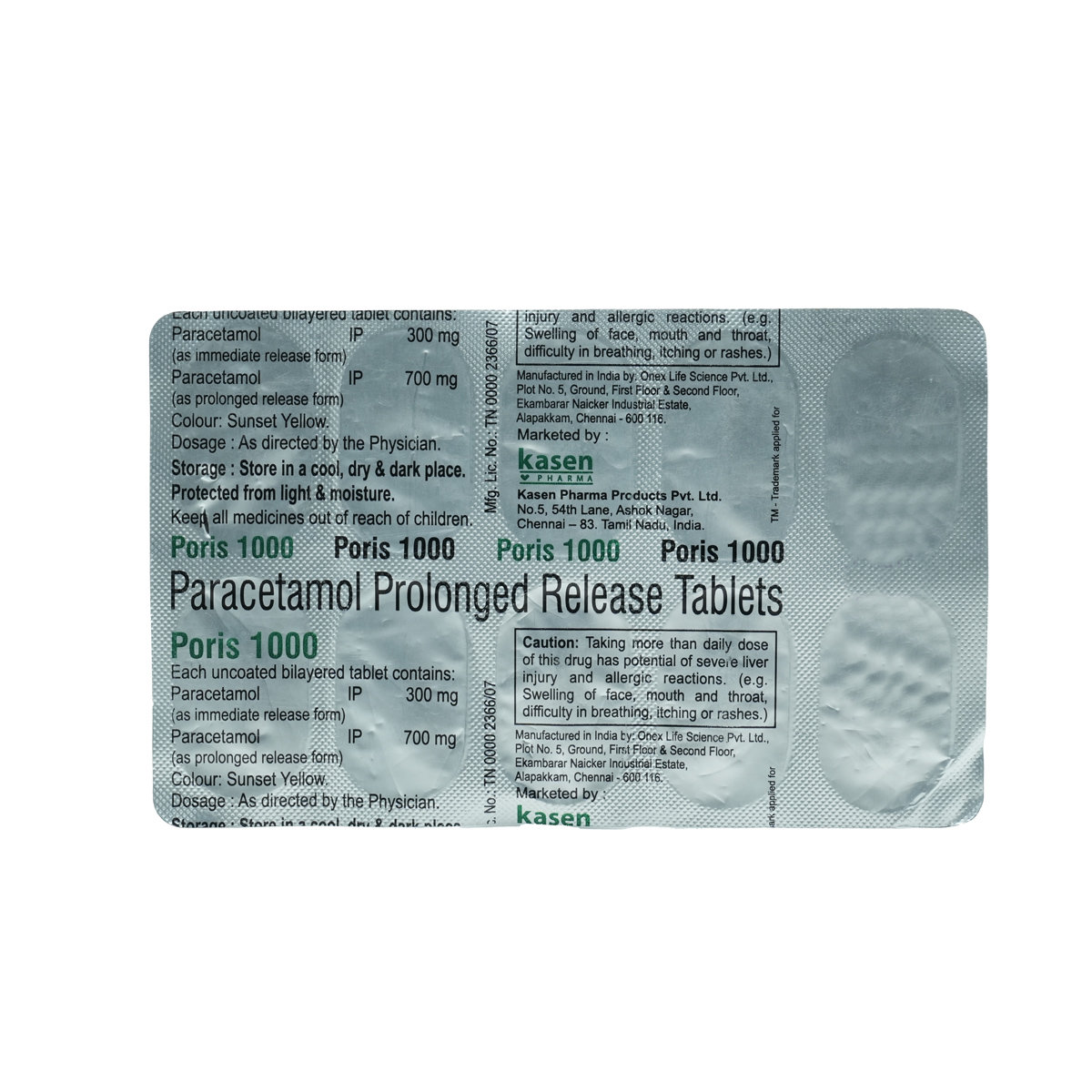

_0.jpg?tr=q-85)


